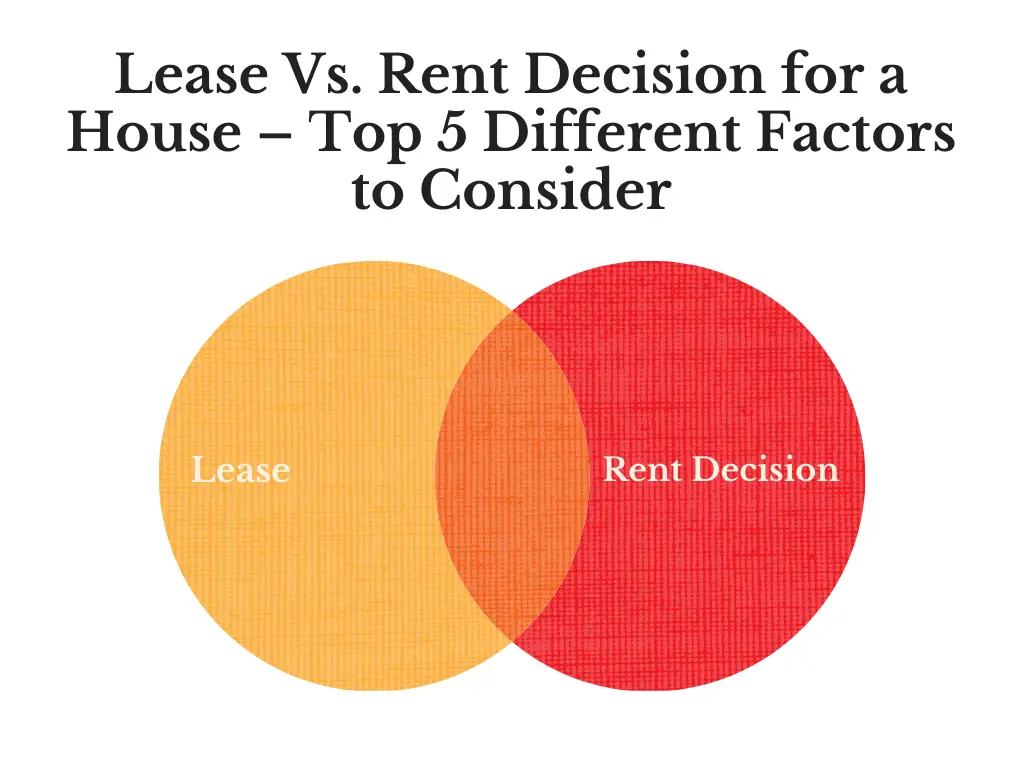The terms lease and rent are used interchangeably. Such use of these terms can often lead to confusion for the tenants. Both terms offer significantly different options to both parties in the agreement.
The main difference between these two terms remains the choice of house ownership at the end of the agreement. There are few similarities too with both terms. Both types of agreements are legally binding contracts. Breach of such a contract can result in severe litigation actions and other legal consequences.

Here are a few similar points that are included in both Lease and Rent Agreements.
- The two parties signing the contract
- Duration of the contract
- Payment terms and price
- A security deposit or down payment amount
- The terms at the expiry of the contract
- Terms and conditions for the house maintenance
Let us first take a glance at the summary of Differences between the two Agreements.
| Feature | Lease | Rent |
| Parties in Contract | Lessor and Lessee | Landlord and Tenant |
| Duration | Long-term | Short-term |
| Payments | Monthly | Monthly-Quarterly |
| Maintenance and Damages | Lessee | Tenant, the landlord with a short-term contract |
| Ownership of the House | Option to buy for the lessee | No option to buy for the Tenant |
| Alteration during Contract | No Alterations, rent change | Alternations possible during the contract |
| Contract Terminations | No termination before Expiry | Can be terminated |
Here are the top 05 factors discussed in detail.
1) The Agreement Duration
Lease agreements are made for a longer period. Usually, a lease period lasts for one year but can range from 03 months to several years. The duration of the lease period significantly changes with the type of lease. For example, a house lease-purchase will usually be longer than a Lease-Option agreement.
The rent agreements are made for a shorter period. The rent agreement can range from 01 months to 12 months. Some real estate firms also offer to rent agreements for less than one month.
The duration terms offer more flexibility to the tenant with rent and stability to the landlord with a lease agreement.
2) Terms and Conditions
All terms and conditions are agreed upon in advance for both types of agreements. The difference is that rental agreements can be altered during the term period. Once a lease agreement is signed, both parties cannot alter any terms before the expiry date.
The alteration clause may be important for tenants as the landlords may change the rent price or ask for property eviction. The lessee, on the other hand, is more secure with binding terms and conditions.
3) Down Payment and Security Deposit
Both agreements require some upfront costs. The rent agreement usually takes a security deposit of at least one month’s rent amount. It may also include some cover for the maintenance and damage costs.
Lease agreements usually require a portion of the house price as a down payment. In the case of a house Lease-Purchase agreement, the down payment works similarly as in a mortgage. However, a lease-option agreement may only include a security deposit.
4) Maintenance and Other Costs
All house maintenance and damage costs are covered by the lessee in a lease agreement. The same will hold true for a tenant if the rent agreement is for a significant period. Short-term rent agreements for 01-03 months usually exclude the maintenance costs.
In house agreements where no maintenance or damage costs are included, the landlord usually includes an insurance fee. The rent prices are also higher in such cases.
5) Ownership of the House
The biggest difference in a house renting or leasing options is the ownership of the house. Renters never own a house even if the rent agreement gets renewed for several years. The lease agreements work in two ways that offer different options to both parties.
The House Lease-Option Agreement
This lease agreement includes a clause that includes an offer to the lessee after a specific time to purchase the house. The house price gets determined at that time. Until that period, the lessee pays regular lease installments. This type of lease agreement offers flexible options to both parties.
The House Lease-Purchase Agreements
This lease agreement includes a certain term that the lessee will purchase the house at the end of the lease period. The lease installments, house price, the down payment, and the lease period are all decided in advance. Both parties are then legally bound to abide by the agreement.
Until the lease contract, the lessee makes payments in installments. These installments can include the amount for rent + the contribution towards the house price.
Lease Vs. Rent A House – Which option is the best one for you?
If we take out the option of owning the house, we can still see some major factors to decide between a lease v rent decision.
Here are a few key differences to keep in mind before you decide:
- Renting is a better option for a Short-term period
- Leasing is affordable for long-term contract
- Consider the maintenance and damage costs
- Evaluate the availability and proximity of the house
- Renting offers more flexibility, leasing offers more stability
